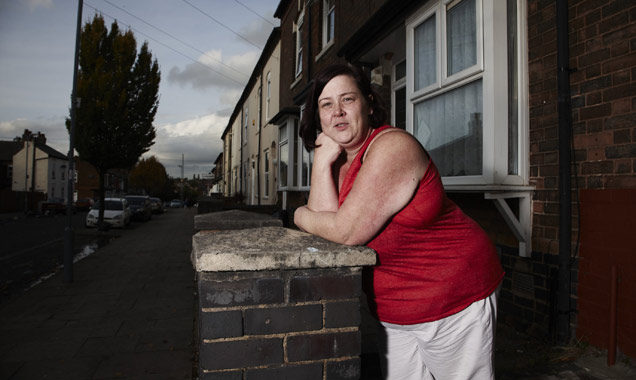Ofcom Clears Channel 4's Benefits Street: Regulator is "Satisfied" With Editorial Justification
By Jack de Aguilar in Movies / TV / Theatre on 30 June 2014
Ofcom clear the controversial doc
Channel 4’s Benefits Street, a documentary surrounding the inhabitants of James Turner Street in Birmingham, has been cleared by the regulator Ofcom after complaints of the negative and offensive way benefits claimants were represented in the 5-part series.
 "White Dee" was a popular if not controversial figure on Benefits Street
"White Dee" was a popular if not controversial figure on Benefits Street
The show was one of the most talked about of Channel 4’s output. With benefits and poverty a sore subject for many Brits, the way in which crime and fraud was so explicitly depicted in the documentary series saw many complain that Love Productions were exploiting their subjects to create a debate and therefore draw attention, manifestly increasing the show’s viewership.
“Ofcom’s view was that it would have been clear to viewers, over the course of the series, that this was an observational documentary about the experiences of one community, and Ofcom considered that the programmes were in line with audience expectations for a series of this nature,” the regulator said. “We concluded that overall Channel 4 ensured there was sufficient context over the course of the series to justify the offence and that it applied generally accepted standards.”
More: Would You Buy a House on Benefits Street?
Primarily, Benefits Street was held up against rule 2.3 of the broadcasting code, which requires broadcasters to ensure “material which may cause offence is justified by the context”, and ruled that they “did not raise issues warranting further investigation”.
The regulator added: “Ofcom was satisfied that certain essential details were not broadcast which may have enabled the successful commission of a crime, and that there was a sufficient editorial justification for including the material broadcast.”
A Channel 4 spokeswoman said: “We welcome Ofcom’s finding that Benefits Street did not breach the code in any respect. We are proud that our robust duty of care protocols for the child contributors have been praised for: ‘demonstrating best practice’ – and for the recognition that we, ‘ensured the interests of the under-18s who featured in Benefits Street were protected and that due care was applied before, during and after production.’ Ofcom noted that the series, ‘illustrated important issues facing some children living in contemporary Britain,’ and that ‘the children’s welfare was at the heart of the production’.
Contactmusic




